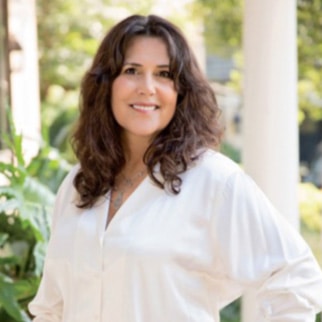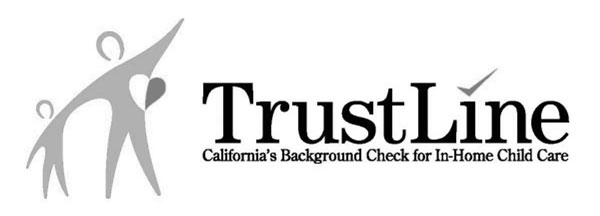If you’re looking for a new job in the domestic staffing industry, professional job references on your resume matter.
Job references allow prospective employers to learn about your past work history and experience, as well as your performance on the job. In short, they give employers a glimpse into your personality, how you approach your work, and if your work habits are consistent with what you say in an interview.
One thing is certain: securing a job that aligns with your skillset and expertise takes more than a good resume and interview – selecting good references can help you stand out among other applicants.
Who to Select
Think closely about who could serve as a solid reference for you. The best professional reference will know your work, accomplishments, training, and responsibilities:
- A previous employer
- A previous manager, or co-worker
- A current client or employer
- A faculty member at a school you attended
- A colleague that you’ve worked on projects with
- Someone you worked closely with during a crisis or challenging situation
While professional references are generally the most desirable, personal references can also be used. These people can provide a glimpse into your personality and your ethics/character outside of work. This could be a mentor, a long-time friend, or another person that knows you outside of a career setting. You want the person to be familiar with your work and can talk knowledgably about what you bring to a domestic staffing role.
Don’t Fake It
Don’t fall into the trap of thinking that no one will call the references you list. And don’t be tempted to put fake references on your resume. If you do, you are not only misleading your new employer, but you could also face criminal charges.
In New York, the ‘Lulu and Leo’s Law’ was signed by Governor Cuomo in 2018, which criminalizes false credentials and misrepresentation of caregivers. For New York candidates, fake references could lead to a Class A misdemeanor, which could mean jail time for individuals choosing to provide false references or fabricate reference letters.
CASE STUDY: FAKE REFERENCE FROM A NON-EXISTENT EMPLOYER
A candidate named Lisa applied for a prestigious nanny position, providing a fake reference letter from a previous employer who claimed to be the head of a well-known family in the city. When the potential employer contacted the reference, they found out that the individual and the family did not exist. This discovery not only led to Lisa being disqualified from the job but also resulted in legal actions being taken against her for providing false information, as per Lulu and Leo’s Law in New York. Lisa faced a Class A misdemeanor charge, severely impacting her career prospects.
Securing References
Once you’ve determined some people you trust to provide a good word for you, ask them for their permission to be listed on your resume. Let them know you’re searching for a new role and ask if they would be willing to answer some questions thoughtfully from potential employers.
If you are applying for a specific role, give your reference some background information so they are prepared to answer things related to that role with confidence.
CASE STUDY: UNPREPARED PERSONAL REFERENCE
Sarah listed her long-time friend Emily as a personal reference when applying for a position as an executive housekeeper. Although Emily was familiar with Sarah’s character, she was not well-versed in Sarah’s professional skills or responsibilities. When contacted by the employer, Emily’s responses were vague and unconvincing, as she was unprepared for the detailed questions about Sarah’s work performance and accomplishments. This lack of preparedness reflected poorly on Sarah, causing the employer to question her reliability and ultimately costing her the job opportunity.
Bad References
Bad references generally don’t provide negative feedback about you, but instead may come across as someone quiet or unresponsive, or ill-prepared for the questions. This might be a poor reflection on you and not give employers a real opportunity to learn about all you can bring to the role.
“The best professional reference will know your work, accomplishments, training, and responsibilities.”
So, be sure to choose your references carefully and keep them in the loop on roles that you’re applying for, so they can be on alert if they get a phone call or email from someone they don’t know.
CASE STUDY: NEGATIVE FEEDBACK FROM A PREVIOUS MANAGER
Lisa, an experienced estate manager, provided a reference from her previous manager, Mr. Thompson. However, she failed to inform Mr. Thompson about her job search and did not ask for his permission to use him as a reference. When the prospective employer contacted Mr. Thompson, he was caught off guard and gave a lukewarm recommendation, highlighting some challenges he faced with Lisa’s work ethic and reliability. This unintended negative feedback led the employer to choose another candidate, highlighting the importance of keeping references informed and ensuring they are willing to provide a positive recommendation.
The Employer and Your References
When employers are speaking to your references, keep in mind that they will be checking what you state in your resume and during your interview. So, don’t exaggerate your skills or expertise, as it could come back to bite you during this final stage of the interview and hiring process.
Your references should be able to effortlessly point out your professional and personal strengths and act as your cheerleader to help you land a job that aligns with your goals.
Put Your References to Good Use
Ready to find your dream role? We place qualified domestic staffing experts in homes across the country. Whether you’re a passionate executive assistant, a caring nanny or newborn care specialist, an experienced estate manager or director of residences, or a detail-oriented executive housekeeper, we can help you find a position that meets your career goals.
Call us today to get started on the hiring and interview process!









